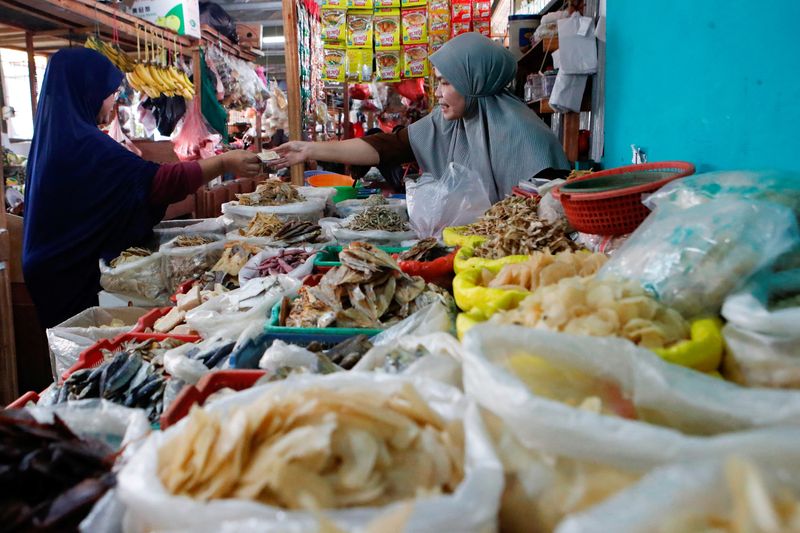By Stefanno Sulaiman and Gayatri Suroyo
JAKARTA (Reuters) -Indonesia's annual inflation rate slowed to 2.28% in September, roughly in line with a market forecast, official data showed on Monday, near the lower end of the central bank's target range.
A Reuters poll of economists had expected a rate of 2.20% following August's inflation rate of 3.27%. The September inflation rate was the lowest since February 2022.
Core inflation also eased to 2.00% from 2.18% a month before, compared with the poll's prediction of 2.08%.
Inflation in Southeast Asia's largest economy peaked near 6% in September of 2022 after the government raised subsidised fuel prices. That bump last year left prices at a high base that contributed to the low reading for the month just ended.
To control inflationary pressures, the central bank raised interest rates by a total of 225 basis points between January and August.
Bank Indonesia's (BI) inflation target is a range of 2% to 4% for this year. The target will be lowered to 1.5% to 3.5% next year.
"The sharp deceleration in Indonesia's September inflation was along expected lines and driven purely by base effects," said DBS Bank economist Radhika Rao.
"The BI will take comfort from easing inflation," she said, although Rao expected no immediate policy easing due to the rupiah's weakness against the U.S. dollar.
Despite headline inflation staying within target, annual rice inflation accelerated in September, with retail prices rising 18.44% from a year earlier, faster than in August.

At rice milling and wholesale levels, prices were up 27.4% and 21%, respectively, on a yearly basis.
The statistics bureau blamed the rising prices for rice - a food staple for most of Indonesia's population of 270 million - on tight supplies as drier-than-usual weather hurt harvests across the country.